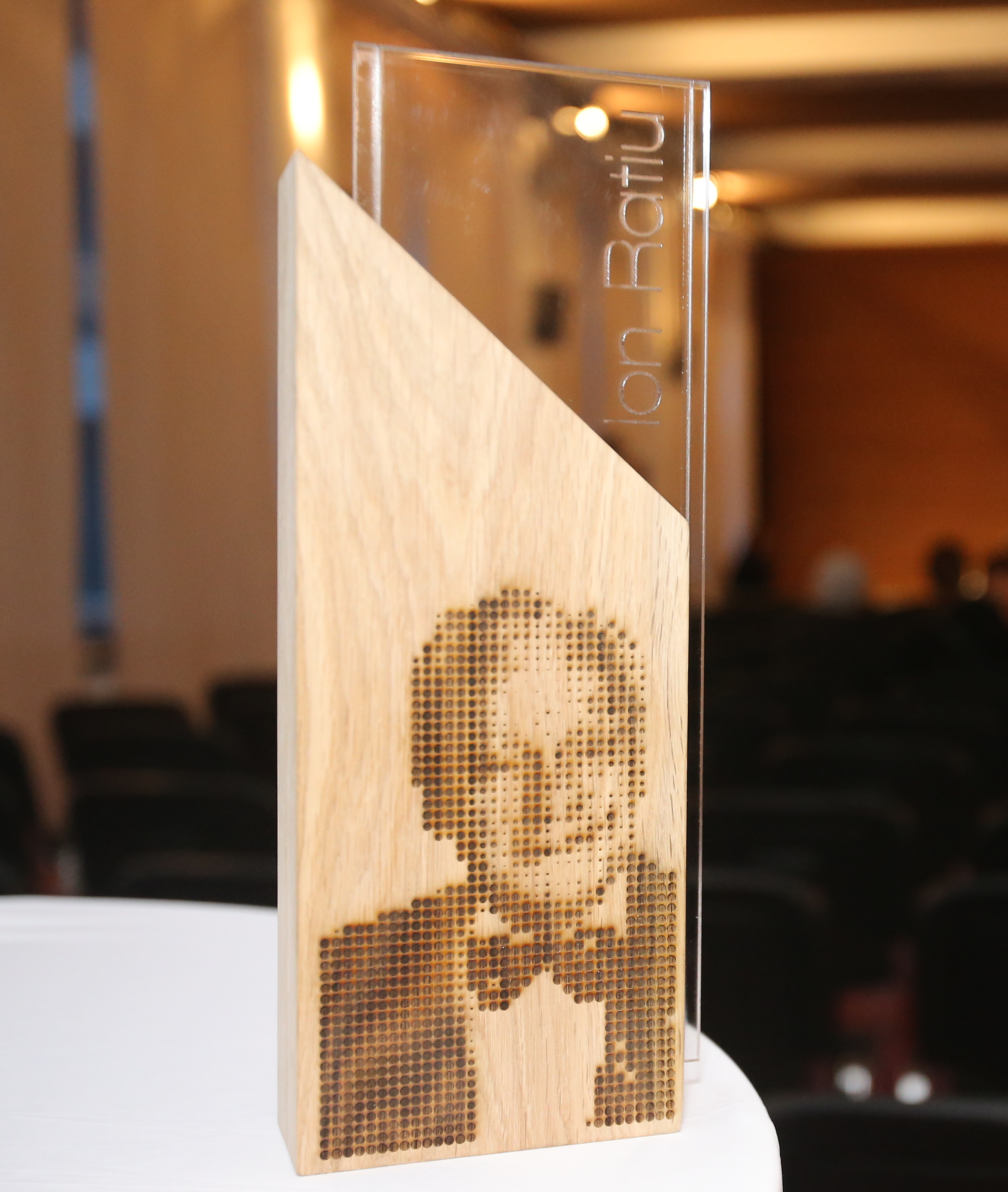
Building on the accomplishments of the Ion Ratiu Democracy Award (2005-2016), the Ion Ratiu Democracy Fellowship (IRDF) supports individuals around the world who are working on behalf of democracy as activists or intellectuals, whether they are in exile from repressive regimes or operating within emerging democracies.
Recipients of the Ion Ratiu Democracy Fellowship will have an opportunity to engage with the Washington policy, media and scholarly communities, but also to find time for reflection and writing on democratic activism often not possible in the day-to-day struggle in their home/exile country. In this sense, the IRDF will seek to replicate the type of life-changing experience that Ion Ratiu encountered as a Romanian democracy activist in Washington in the 1970s and 1980s.
While pursuing their own projects during their time at the Wilson Center, Fellows are expected to hold public lectures on the themes of democracy and democratic activism while conducting research on a specific project. In addition, Fellows will actively participate in discussions with the public policy and academic communities, including giving speeches and lectures at other institutions and taking part in meetings and conferences. Fellows are encouraged to publish their findings in long or short form through the Wilson Center multi-media portals.
Awardees

Mykhailo Amrosiev is the founder of the public organisation Young Veterans Ukraine, which provides practical assistance to soldiers and members of their families. Born in Kyiv in a family of entrepreneurs on the 4th of January 1994, Mr Mykhailo Amrosiev was nominated for his contribution to the social and political life of modern Ukraine, his dedication and courage.
Mykhailo Amrosiev (2023)
On 21 November, Mykhailo Amrosiev was one of the organisers of a group of students who went to the Independence Square at the beginning of the Euromaidan wave of demonstrations.
After the Russian invasion of eastern Ukraine, he took up arms and, as part of a volunteer battalion, went to defend the country. Having received an injury in the frontline, he became a disabled at the age of 25 and left the battlefront. Together with his brothers, he founded and headed the public organisation Young Veterans Ukraine, where he independently supervises the rehabilitation of the wounded abroad.
Mykhailo Amrosiev currently defends Ukraine as part of the 93rd Separate Mechanized Brigade “Kholodny Yar”, holding the position of a chief sergeant and commanding a platoon of military material support. From Bakhmut he establishes connections with Ukrainian and foreign volunteer organisations, securing charitable funds to meet the needs of fellow citizens. In addition, he helps local residents and abandoned animals in the war zone. Read bio here.
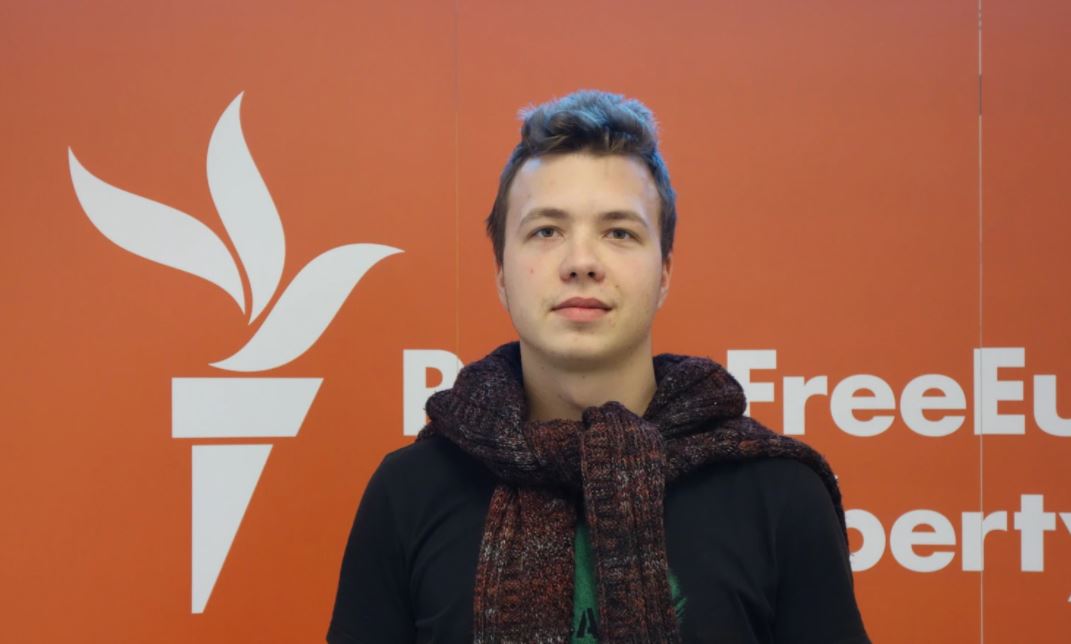
Roman Protasevich is the former editor-in-chief of the Nexta Live channel, which is based on the Telegram messenger app and has over 1 million subscribers, being the primary source of news that covered the 2020-2021 Belarus rallies.
Roman Protasevich (2021)
On 23 May 2021, Protasevich was detained by Belarusian authorities after the international passenger flight from Athens to Vilnius Airport was intercepted in Belarusian airspace by a Belarusian fighter jet and directed to land in Minsk.
The Awardee studied journalism at Belarusian State University until he was expelled in 2018 and has been an opposition activist since his youth, being a member of the opposition organization Young Front. He worked in the Belarusian media and also for the Belarusian edition of Radio Free Europe/Radio Liberty. In 2017-2018, he has also been a Václav Havel Fellow in Journalism in Prague, then moved to Poland in 2019, where he announced that he asked for political asylum in January 2020. He later relocated to Vilnius, where opposition leader Sviatlana Tsikhanouskaya is also based. Roman Protasevich was one of the coordinators of Nexta until September 2020, covering protests against alleged rigged presidential elections in August 2020. In November 2020, together with the co-founder of Nexta, Sciapan Pucila, he was accused of organizing mass riots, of actions that grossly violate public order, and of incitement of social enmity based on professional affiliation. As of March 2021, Protasevich became the chief-editor of the Telegram channel “Belarus of the Brain”, which has around a quarter of a million subscribers and was formerly edited by a detained Belarusian blogger, Ihar Losik.
May 2023 Update
Belarusian journalist sentenced to eight years after being hauled off Ryanair flight
Roman Protasevich, the Belarusian journalist arrested after being hauled off a Ryanair flight forced to land in Minsk almost two years ago, has been sentenced to eight years in prison on charges of conspiring against the state.
27-year-old Roman Proasevich was found guilty of several offences, including organising mass disturbances, inciting acts of terrorism and slandering Belarusian president Alexander Lukashenko, according to Belta state news agency.
Mr Proasevich had worked as a journalist for the Nexta news outlet, which reported extensively on mass protests against the president in 2020.
Nexta’s founder Stsiapan Putsila and former editor Yan Rudik were sentenced in absentia by the same court to 20 and 19 years respectively. Nexta news outlet was declared a “terrorist organisation” in Belarus last year.
Read more here.
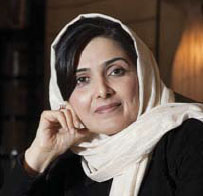
The executive director of Voice of Women, and women’s rights activist. A recipient of many prizes, including the 2008 International Women of Courage Award and one of Time magazine’s 100 most influential people in 2009, Suraya Pakzad is a globally renowned women’s rights activist for her lifelong work to help and protect Afghan women and girls from all forms of violence in the face of life-threatening abuse.
Suraya Pakzad (2019)
She ran a covert school for girls in Kabul during the Taliban years which later evolved into the Voice of Women NGO. It runs five safe houses in western Afghanistan, providing refuge and legal services to more than 1000 women and girls subjected to various forms of violence, and works on gender equality and justice in 29 of the 34 Afghan provinces.
Connecting the dramatic levels of violence against women to poverty and war, she calls on the international community to commit to tailored interventions focused on economic security, and for foreign interference in the Afghan conflict to end. Twice the subject of religious edicts ordering her assassination, Suraya lives under daily threat to her life. She is based in Herat.
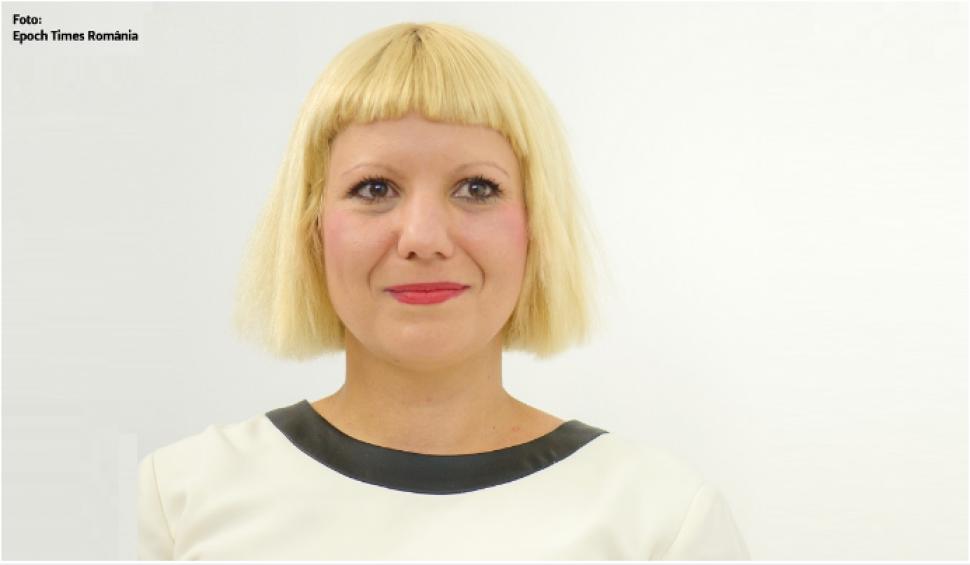
Camelia Bogdan is an experienced Bucharest Court of Appeals judge specialized in countering economic crime and asset recovery of proceeds of crime.
Camelia Bogdan (2018)
In her capacity of expert of the European Commission, she has participated, starting with 2009, in more than 40 international conferences or training sessions of the law enforcement agents, being invited/recommended by international institutions such us World Bank, European Commission, the Organization for Security and Cooperation in Europe, the European Union Intellectual Property Office (formerly known as the European Office for Harmonizing the Internal Market).
She is also associated researcher with the Centre Régional Francophone de Recherches Avancées en Sciences Humaines et Sociales de Bucarest (CEREFREA–Villa Noël), representing her fellows in the Scientific Council. The results of her academic activity include 2 monographs, one PhD thesis, two guides for the Romanian magistrates on countering money laundering/financial investigations of transnational organized crime activities, more than 100 judicial studies published in law reviews and papers presented at conferences and colloquiums. In 2009, Camelia Bogdan was awarded a PhD in Criminal Law from the Bucharest University, Faculty of Law, for the thesis: ”Countering Money Laundering of the Proceeds Derived from Organized Crime Activities, in the light of Domestic and International Regulations”. She is currently preparing her new international PhD in joint supervision of Bucharest and Strasbourg University. Her thesis title is “Asset Recovery of the Proceeds of Crime in French and Romanian Criminal Trial”. Camelia Bogdan also graduated the European College of Financial Investigations and Analysis of Financial Crimes (C.E.I.FA.C.) third training session and as a result of that, she holds an LLM from the Strasbourg University for the Dissertation ”Judicial Investigations During Trial”.
Between December 2016 and January 2018, Camelia Bogdan has been a visiting fellow affiliated with the Institute of Advanced Legal Studies, London and the Swiss Institute of Comparative Law from Lausanne. In 2018, she received the Fulbright Senior Award for Visiting Scholars and she is currently affiliated with the Center for International Financial Crimes from Levin College of Law, University of Florida. Her research focuses on Fostering Efficacy In The Asset Recovery Of Proceeds Of Transnational Corruption.
Camelia Bogdan was twice expelled from the Romanian judiciary. Firstly, on 8th of February 2017, the the Judicial Section of the Superior Council of the Judiciary accused her of cumulating functions and conflict of interest. She won at the Supreme Court, but the C5 panel decided that she should be removed for 6 months at Târgu Mureș Court of Appeal, in order to serve a disciplinary sanction, starting with 15th January 2018. She was expelled for the second time in April 2018 allegedly because she would have infringed the principle of repartition aleatoire. Her case is currently pending at the Supreme Court.
Camelia Bogdan was beneficiary of a further award to assure her continuing L.L.M. studies at George Washington University.
The award was for $31,000 made by the Ratiu Foundation Romania (USA), funded by the Ratiu Family Charitable Foundation and Romanian United Fund (USA).
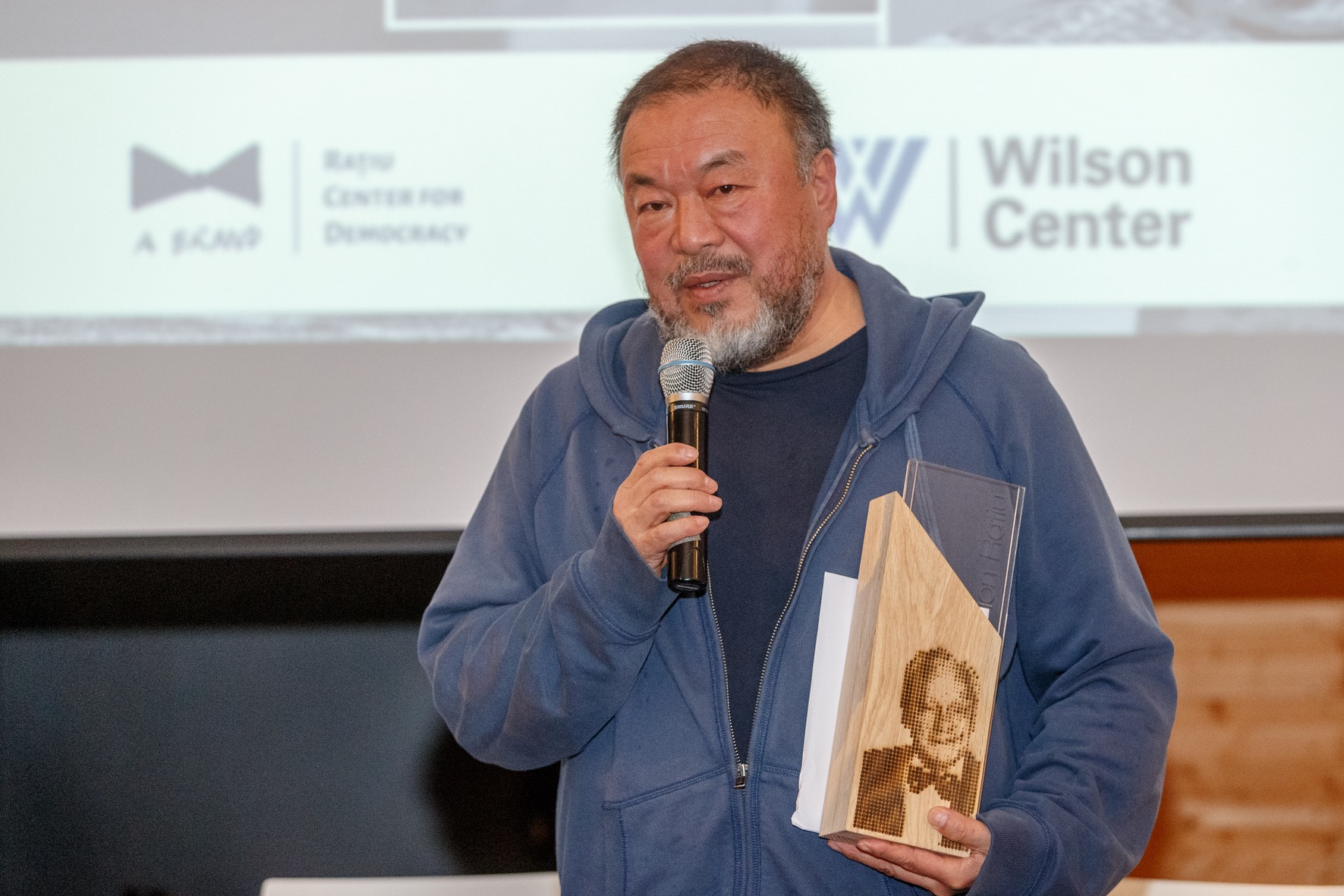
Ai Weiwei is an artist. Born in 1957, he currently resides and works in Beijing. As an activist, he calls attention to human rights violations on an epic scale; as an artist, he expands the definition of art to include new forms of social engagement.
Ai Weiwei (2017)
From smashing an ancient vase to reciting the names of children who died due to government negligence, Ai Weiwei’s dramatic actions highlight the widening gap between the ideal and the real in Chinese society. He is also one of the earliest conceptual artists to use social media – Instagram and Twitter, in particular – as one of his primary media. Some of his most recent works are simple actions designed to call attention to the humanitarian crises. On an increasingly global scale, Ai Weiwei’s humanitarian efforts focus on those who live in poverty and oppression, and who might not otherwise have a voice. Ai Weiwei’s own experiences of incarceration, interrogation and surveillance form the basis for his interest in the portrayal of dissidents worldwide. In 2014, while being prohibited to leave China, he created Trace, an installation featuring portraits of 176 individuals from around the world whom he believes to have been detained, exiled or have sought political asylum as a result of their actions, beliefs or affiliations. The work is built entirely of plastic LEGO blocks. Human Flow (2017) is an epic film journey led by Ai Weiwei, giving a powerful visual expression to this massive human migration. The documentary elucidates both the staggering scale of the refugee crisis and its profoundly personal human impact. Captured over the course of an eventful year in 23 countries, the film follows a chain of urgent human stories that stretches across the globe in countries including Afghanistan, Bangladesh, France, Greece, Germany, Iraq, Israel, Italy, Kenya, Mexico, and Turkey. Human Flow is a witness to its subjects and their desperate search for safety, shelter and justice.
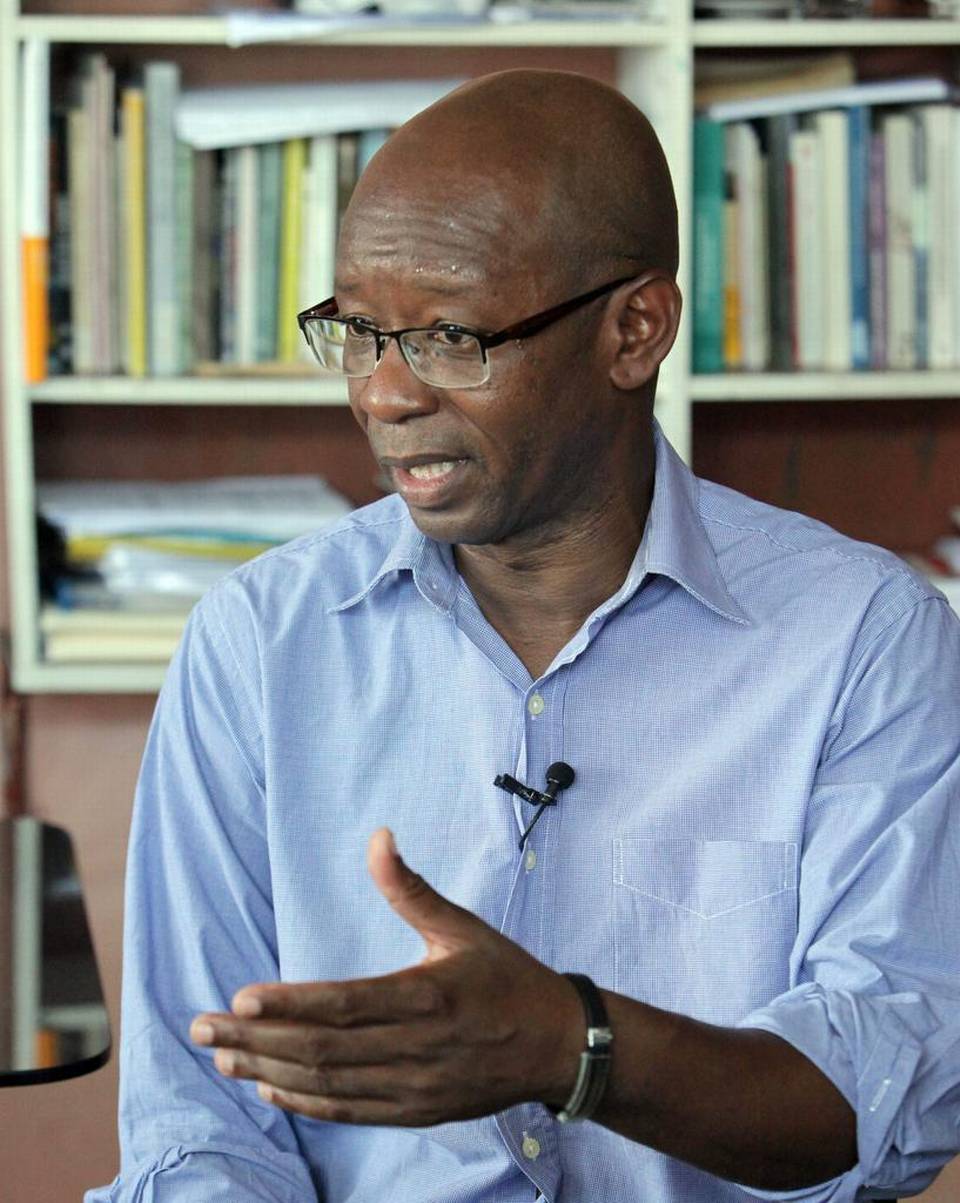
Rațiu Family Charitable Foundation, Woodrow Wilson International Center for Scholars and Rațiu Center for Democracy are pleased to announce that Dr. Manuel Cuesta Morua, a leading scholar and political activist from Cuba, received the 2016 Ion Ratiu Democracy Award, a one-month fellowship in Washington, D.C.
Manuel Cuesta Morua (2016)
A historian of Contemporary Asia, Dr. Manuel Cuesta Morua has worked extensively on democratic reforms in Cuba. Over the last two decades Cuesta Morua joined and played a leading role in a number of human rights organizations, including the Human Rights and National Reconciliation Commission. With other dissidents, he established the Reflection Table of the Moderate Opposition, in 1998, and organized Arco Progresista in 2002. He has been arrested multiple times for defending human rights and organizing opposition gatherings in Havana. He has held more than 300 round table discussions that focus on proposing a new, democratic constitution for the nation. In March 2016 he was a member of a select group of Cuban dissidents to meet with President Obama at the U.S. Embassy in Havana. At present Cuesta Morúa is coordinating, with other prominent activists, the Plataforma Ciudadana #Otro18, seeking electoral reforms in Cuba, and belongs to the Unity Roundtable for Democratic Action, a coalition of organizations and personalities from Cuba and abroad.
“A new, democratic answer is required, indeed. A democracy rooted in liberal ideas, founded on diversity, thorough analysis and inclusive debate, and a large informed participation, on open systems and citizenship. Especially citizenship. A strong democracy able to admit at the end of the day, following Robert Frost, that perhaps the other might also be right. There are people who believe winning the argument is more important than winning the vote. Not in reaching the government, perhaps, but surely for the power of democracy. We will only succeed if we understand democracy triumphs only if it remains an universal value.”
Dr. Manuel Cuesta Morua
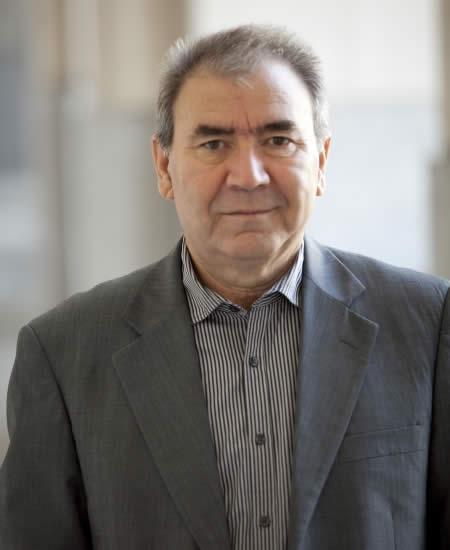
Dr. Jamil Hasanli is a historian and democracy activist in Azerbaijan.
His lecture addressed the challenges faced by his country, about its attempt to take distance from Russia after winning independence in 1991 following the Soviet Union dissolution.
Jamil Hasanli (2015)
, Within hours of Dr. Hasnali’s address, Leyla Yunus was released, following a decision of the Baku Court of Appeal, which suspended her eight-and-a-half year jail sentence and turned it into a five year probation. We strongly believe that the efforts of the international community, of states and supranational organizations, of NGOs and individuals made this release happen.
Upon leaving jail, Leyla Yunus – who was sentenced for treason, tax evasion and fraud for political reasons – complaint that she was severely beaten by guardians when she was arrested, in July 2014. Her husband, Arif Yunus, waited for her; he had also been sentenced to seven years of jail on the same charges, but was released for medical reasons in November 2015.
The prosecution of Leyla Yunus and of her husband was condemned by the national community as a part of the repression against Azerbaijan dissidents. Numerous activists, journalists and critics of the government – including journalist Khadija Ismayil – are still in jail, on charges that are regarded as political by Western officials and groups defending the human rights.
“Azerbaijan and its authoritarian government have kept their criminal nature. The governors are engaged in corruption, they have an unlimited monopoly inside the country, and they have forged and confiscated the elections. Innocent people are arrested and jailed, and there are over 100 political convicts. I’ve just learnt today that the president of the Azerbaijan Popular Front Party, Fuad Gahramanli, was arrested. The Government does not respect its people. Then how could we talk about any form of cooperation and about sharing values?! When Azerbaijan joined the Council of Europe in 2001, we were naïve enough to believe that the European Union would do anything to adjust the Azerbaijan regime and system to the European standards. It is only now that we realize that the exact opposite happened: the European Union was forced to follow the rules of Azerbaijan. This is a very dangerous tendency when it comes to lobby and lobby related activities, and we need to be very careful. I would like to say a few words about political convicts in Azerbaijan. Why? Because I am the head of the committee that defends the rights of political convicts from Azerbaijan – around 100 individuals as said before. Most of them have been arrested and imprisoned in the last years, following the latest presidential elections. Two women are among them – Layla Yunus and Khadija Ismayil. On 21 December, Layla Yunus will turn 60, but we cannot be certain that she will be able to celebrate her birthday. Because her situation is terrible – anything can happen to her in the jail. And I can’t understand – in an ethic sense – what does the Azerbaijan government win by putting pressure on Leyla Yunus?!”
Jamil Hasanli, Former Member of the Parliament, Republic of Azerbaijan
Political challenges of contemporary Azerbaijan:
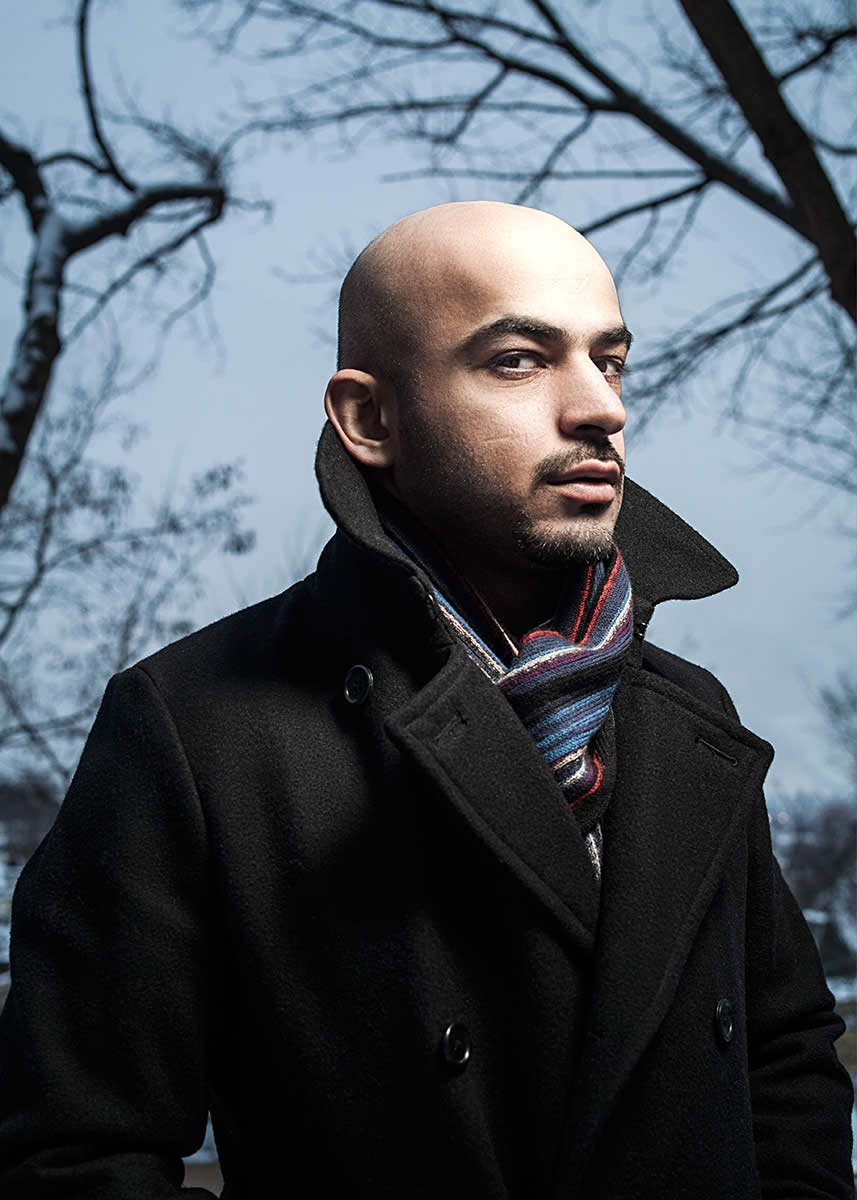
Mustafa Nayyem is one of the most respected and popular Ukrainian journalists and bloggers.
Mustafa Nayyem (2014)
)”Mustafa Nayyem has been working at “Ukrainska Pravda” (“Ukrainian Truth”) since 2006, directing online media. In April 2013, along with several colleagues, he founded Ukraine’s first independent Internet TV Channel: Hromadske.tv. This unique platform is funded by independent donations, and was created in response to censorship and media monopolization.
Mr. Nayyem and Hromadske.tv played a crucial role in the “Euromaidan” protests. His Facebook post in which he issued a call to go to Independence Square (Maidan) in Kyiv, to protest the Ukrainian government’s decision to stop Ukraine’s process of integration into the European Union, was shared over one thousand times in a matter of hours. These protests precipitated the fall of President Yanukovych’s government and are evidence of the Ukrainian people’s struggle for freedom and democratic values, and Mustafa Nayyem’s actions around that time have placed him as an important leader of the protests. Read more.
“I was extremely moved by the memorials in the Maidan when I visited Kiev as an election observer in May. Ukraine has a tough road ahead, and journalists like Mustafa Nayyem play a vital role in building a competent, transparent, and pluralist government. Mustafa Nayyem’s dedication to these values makes him a worthy recipient of this year’s Ion Ratiu Democracy Award. (Jane Harman, Director, President and CEO Wilson Center)
Related content
Mustafa Nayyem honored for efforts to establish democracy in Ukraine
The “Spark” of Euromaidan and Meridian
Democracy in Ukraine: A Conversation With 2014 Ion Ratiu Award Winner Mustafa Nayyem
Democracy Award for Ukrainian Parliamentarian
Ukrainian Lawmaker: ‘We Are Hostages Of Putin’
Read the lecture:
Ukrainian Democracy after the Maidan: Threats and Opportunities
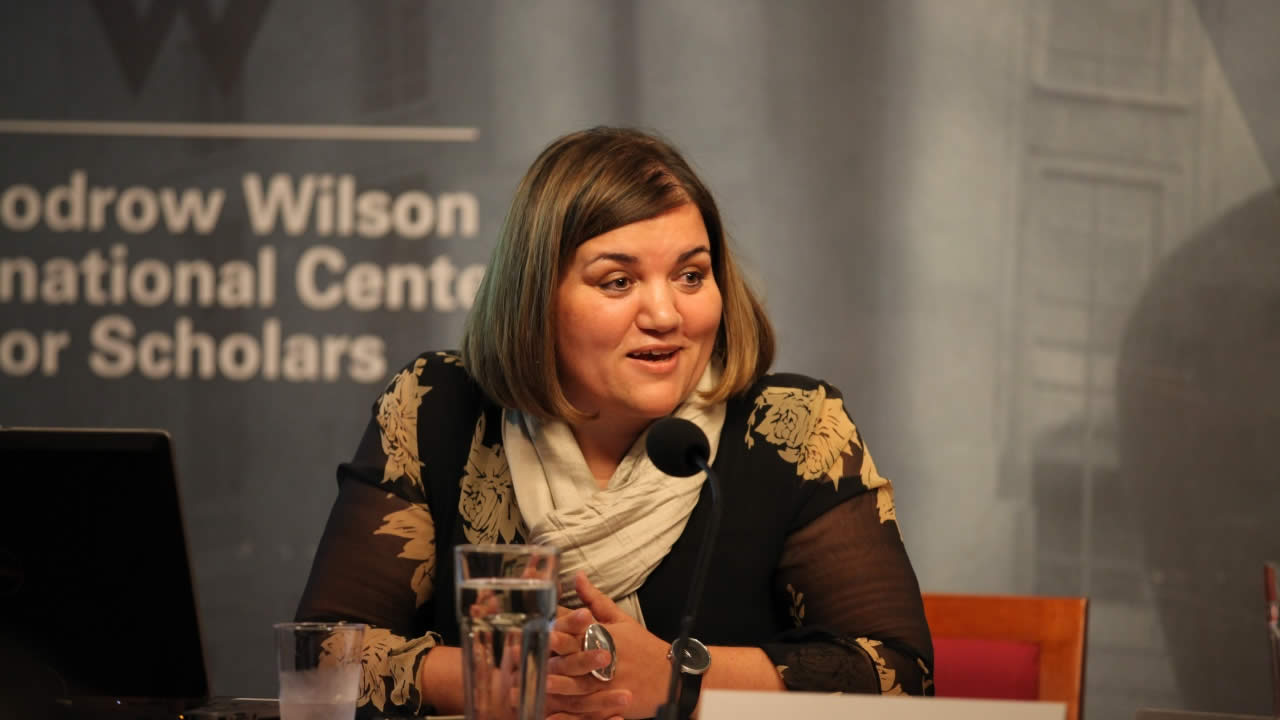
Dr. Angela Kocze, a leading Hungarian Roma rights activist and scholar, is currently a Visiting Assistant Professor with the Department of Sociology at Wake Forest University in North Carolina, as well as a Research Fellow at the Hungarian Academy of Sciences.
Angela Kocze (2013)
Dr. Kocze has an international reputation for interdisciplinary approach, combining political activism and policy-making with in-depth participatory research studies on the Roma situation in Hungary and elsewhere. Dr. Kocze also worked as a founding director of the European Roma Information Office (ERIO) in Brussels (2003-2004), as well as the former director of the human rights education program at the European Roma Rights Centre (1998-2003) in Budapest. Dr. Kocze was the founding director of the Romaversitas program (1996) in Budapest which offers scholarships and mentorship for Roma minority university students.
Political Dispossession of Roma in Contemporary Europe:
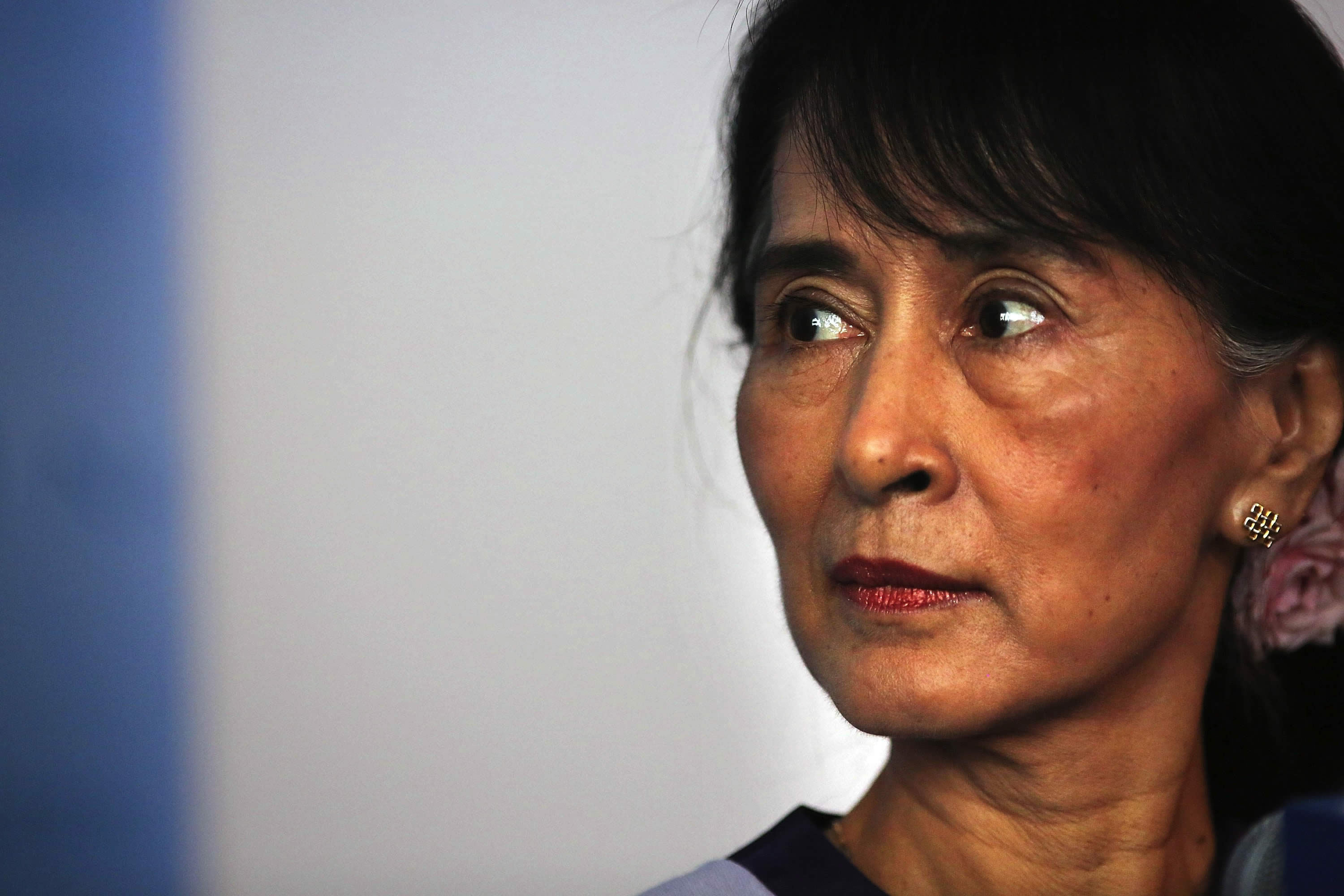
Aung San Suu Kyi (2012)
Aung San Suu Kyi was honored with the prestigious award in Nay Pyi Taw, Myanmar, during the “Women Leading Democracy Building in Myanmar” Workshop. The award was presented by Mr. Nicolae Ratiu, chairman of The Ratiu Family Charitable Foundation. This was the first time a Raţiu Award nominee is honored in her home country at a program that advances her cause among the people whose rights she defended and fought for.
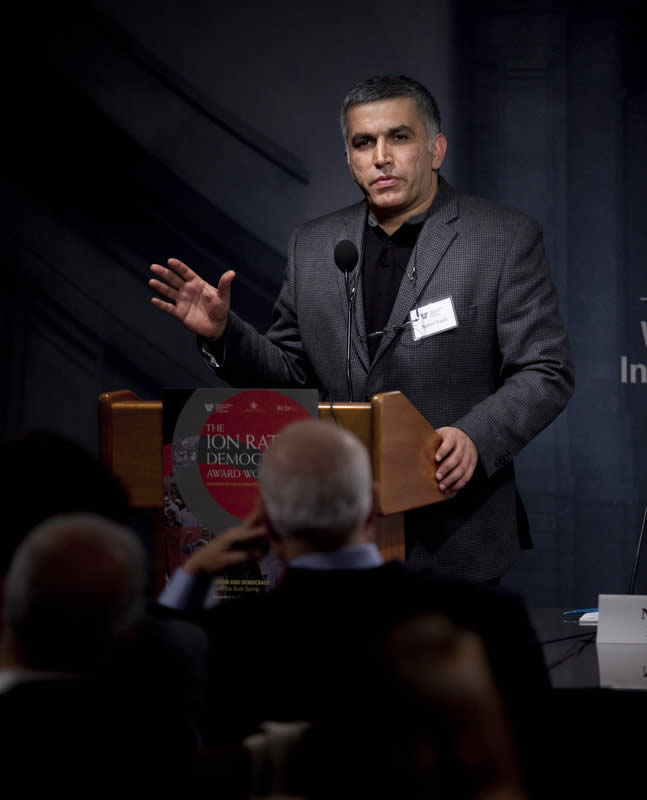
Nabeel Rajab, a leading human rights activist and president of the Bahrain Center for Human Rights received the 2011 Ion Ratiu Democracy Award, presented annually by the Woodrow Wilson International Center for Scholars.
Nabeel Rajab (2011)
One of the founders of the human rights movement in Bahrain, Nabeel Rajab is president of the Bahrain Center for Human Rights. Rajab also has been active internationally as deputy secretary general for the International Federation for Human Rights and as the chairperson of CARAM-Asia, a regional network that addresses migration and health issues. He is also a member of the Board of Advisors for the Middle East and North Africa division of Human Rights Watch and a member of an Arab media monitoring group.
“The Government of Bahrain would be wiser to tolerate dissent and promote the free expression of views. Events in the region in the past year make clear that local voices will not remain silent and repression will be resisted.” (Jane Harman, Director, President and CEO Wilson Center)
The Price of Freedom and Democracy: Defiant Bahrainis and the Arab Spring:
Related content
2011 Ion Ratiu Democracy Award Workshop – Washington DC
World Youth Democracy Forum with Nabeel Rajab
Statement on Nabeel Rajab by The Hon. Jane Harman, Director, President and CEO, the Wilson Center
CNN Report on Bahrain Violence
State Department stands up for Nabeel Rajab
Nabeel Rajab sentenced to two years in appeal
National Endowment for Democracy
Read the lecture:
The Price of Freedom and Democracy: Defiant Bahrainis and the Arab Spring
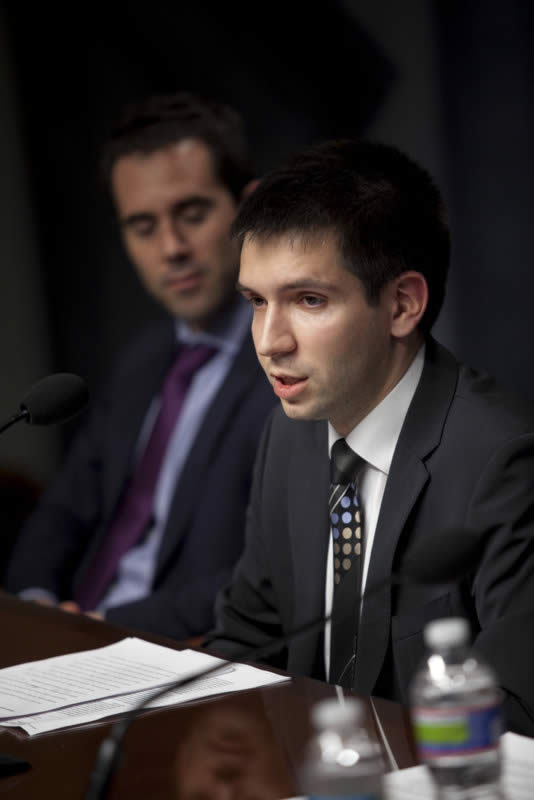
Oleg Kozlovsky is co-founder of the Solidarnost United Democratic Movement and of Oborona, a democratic youth movement in Russia.
Oleg Kozlovsky (2010)
Currently, he is the executive director of Vision of Tomorrow Foundation and an analyst with the Anti-Corruption Policy Lab at the Higher School of Economics in Moscow.
As organizer of many nonviolent actions and rallies in defense of democracy and human rights in Russia, Belarus, Ukraine, and Moldova, he was arrested and detained multiple times, during his latest detention in May 2008, Kozlovsky was recognized as a prisoner of conscience by Amnesty International.
Democracy, new tools for the struggle:
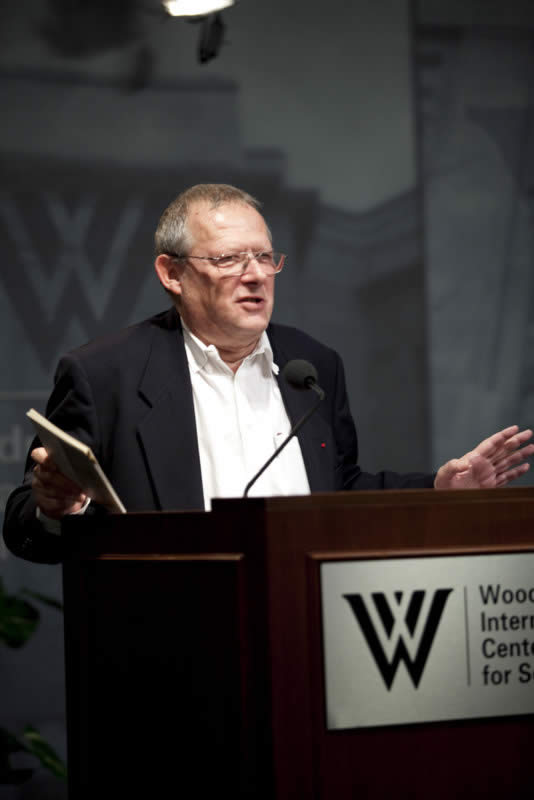
Adam Michnik is the editor-in-chief of Gazeta Wyborcza, Poland’s largest daily newspaper.
Adam Michnik (2009)
Adam Michnik was a founding member of the Komitet Obrony Robotnikow (Committee for the Defense of Workers) in 1976 and a prominent activist during the Solidarity movement in the 1980s. He participated in the Round Table Talks of 1989, and was later elected to Poland’s first non-communist parliament, where he served from 1989-1991. Michnik is the author of several books, including „Letters from Prison and Other Essays” (1987); „The Church and the Left” (1993); „Letters from Freedom: Post Cold War Realities and Perspectives” (1998); and „In search of Lost Meaning” (2011).
Democracy, traps and question marks:
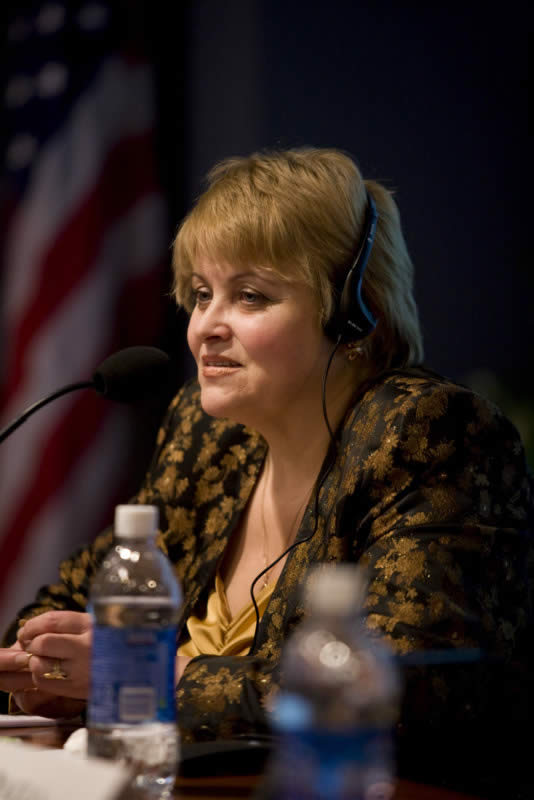
The principal of Stefan the Great High School (Stefan Cel Mare Si Sfint Lyceum) in Grigoriopol, Moldova
Eleonora Cercavschi (2008)
The principal of Stefan the Great High School (Stefan Cel Mare Si Sfint Lyceum) in Grigoriopol, Moldova, Eleonora Cercavschi is a dedicated human rights and democracy activist who has devoted her career to defending children’s right to be educated in their own language. In 2002, under the pressure from Transnistrian authorities, the high school was shut down, and relocated to Dorotcaia, Dubasari district, an area controlled by the central authorities of the Republic of Moldova, some 20 km away.
Democracy and freedom as fundamental human rights:
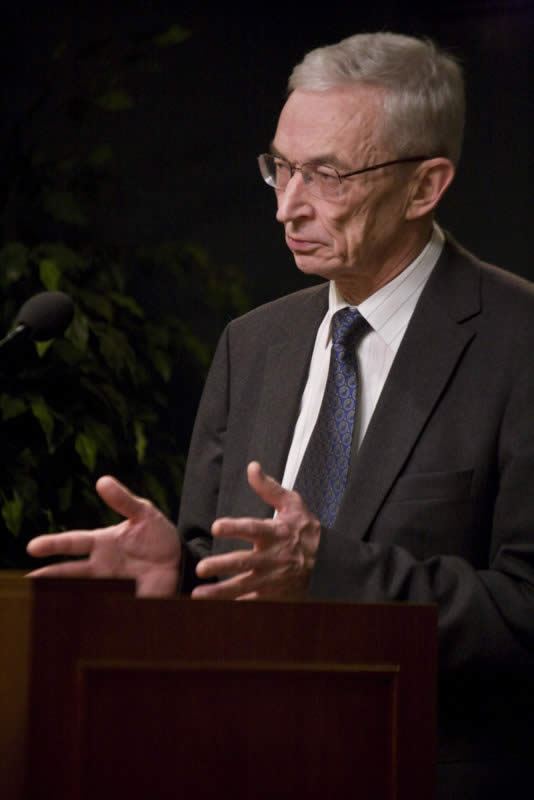
Anatoli Mikhailov is a highly respected expert of German philosophy and the Rector of the European Humanities University, a university he established in Minsk in 1992 in order to provide an alternative to the established education process inherited from the Soviet Union.
Anatoli Mikhailov (2007)
Anatoli Mikhailov is a highly respected expert of German philosophy and the Rector of the European Humanities University, a university he established in Minsk in 1992 in order to provide an alternative to the established education process inherited from the Soviet Union. In 2004, the Lukashenko regime ordered the university shut down. Mikhailov was forced to leave the country and has been in exile in Vilnius since. The University was reopened in Vilnius since 2005 with EU help and is educating 270 graduate students in addition to a number of students that are taking long distance learning courses from the university.
Democracy as a challenge:
Related content
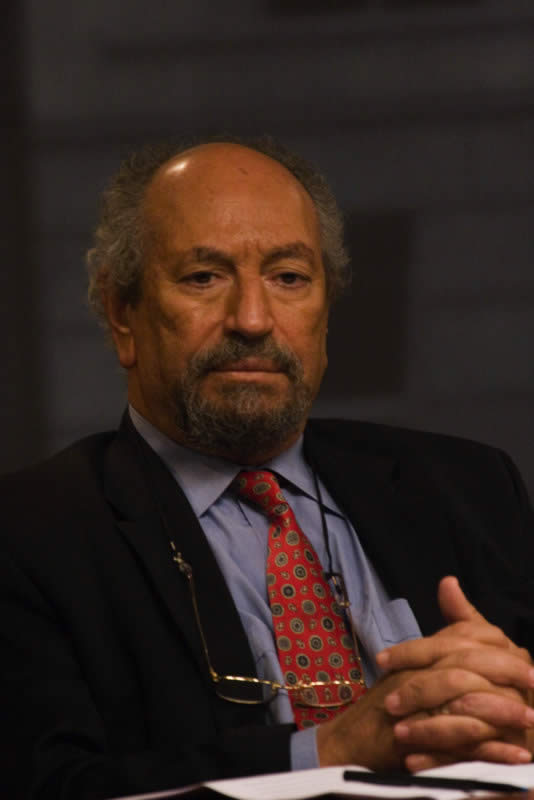
A prominent Egyptian democracy and human rights activist
Saad Eddin Ibrahim (2006)
A prominent Egyptian democracy and human rights activist, Ibrahim is credited for playing a leading role in the revival of Egypt’s contemporary research-based civil society movement and ranks among the most prominent sociologists in the Arab world. Ibrahim has published widely on Islam, politics, democracy, citizenship, and civil society and is the recipient of numerous awards. Convicted and arrested between 2000 and 2003 on political charges, he is the founder of the Ibn Khaldun Center for Development Studies in Cairo, as well as the Arab Organization for Human Rights.
Following the fall of the Mubarak regime, Saad Eddin Ibrahim has returned to Egypt.
Freedom “After” Speech: Speaking up and paying the price in Egypt
Related content
Dialogue: The Art of Conversation
Read lecture and related documents:
Introducing Saad Eddin Ibrahim By Ambassador Akbar Ahmed
Are There Democracy Lessons Arabs Can Learn From Eastern Europe? by Saad Eddin Ibrahim
Democracy Bridge Building Arabs, Central and Eastern European Democrats By Professor Eliot Sorel
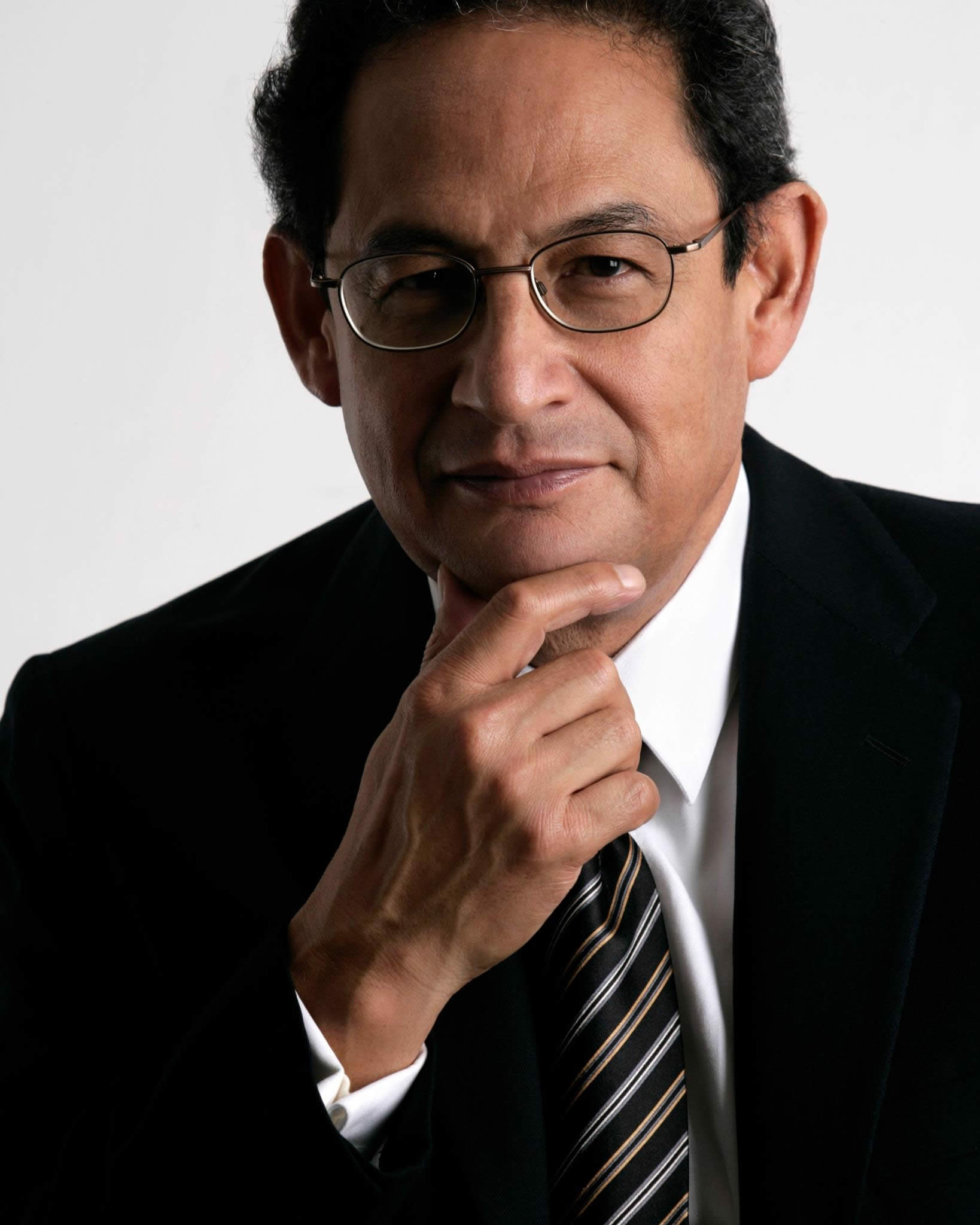
Professor and researcher at El Colegio de México since 1977,
Sergio Aguayo (2005)
Professor and researcher at El Colegio de México since 1977, he has also taught at the Centro de Investigación y Docencia de Económicas (CIDE), the Universidad Nacional Autónoma de México (UNAM) and at a number of other national and international universities. He is a frequent writer for newspapers and magazines, most notably Reforma and was a founding member of the newspaper La Jornada. From 1990 to 1996 he was president of the Mexican Academy of Human Rights and from 1994 to 1999 he was a member of Civic Alliance, one of Mexico’s most prominent NGOs. Dr. Aguayo is President of the Board of Directors of Fundar, Centro de Análisis e Investigación.
“Aguaio is one of Mexico’s most prominent human rights and democracy advocates, a scholar and teacher and the author or editor of more than 20 books, as well as numerous articles, book chapters and contributions to the Mexican and Latin American media. In the course of his work he helped start a newspaper, La Journada, helped found Sedepac, an NGO devoted to democratic development and cofounded Civic Alliance, an umbrella organization whose 30,000 plus members have pioneered anti-corruption efforts and the reform of governance in Mexico”. (Steve Heydemann, Director Center for Democracy and Civil Society)
